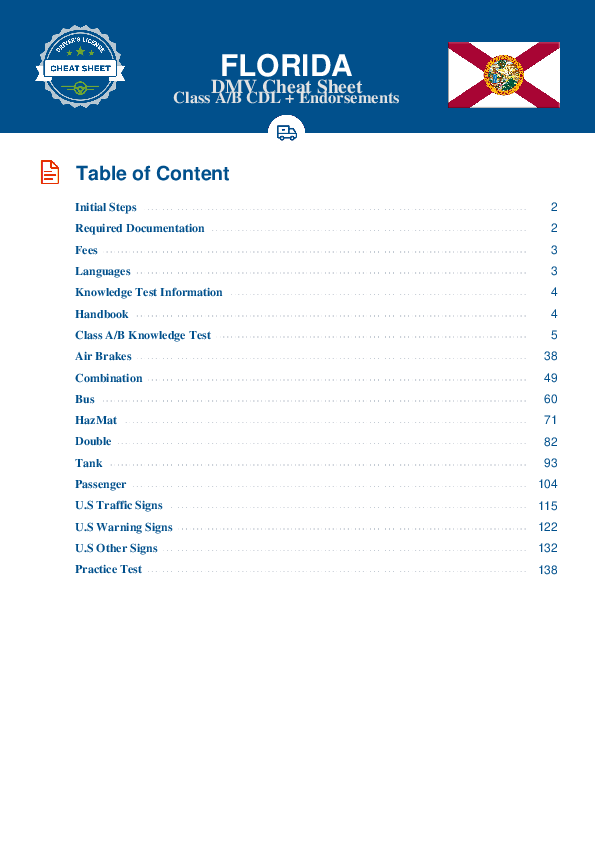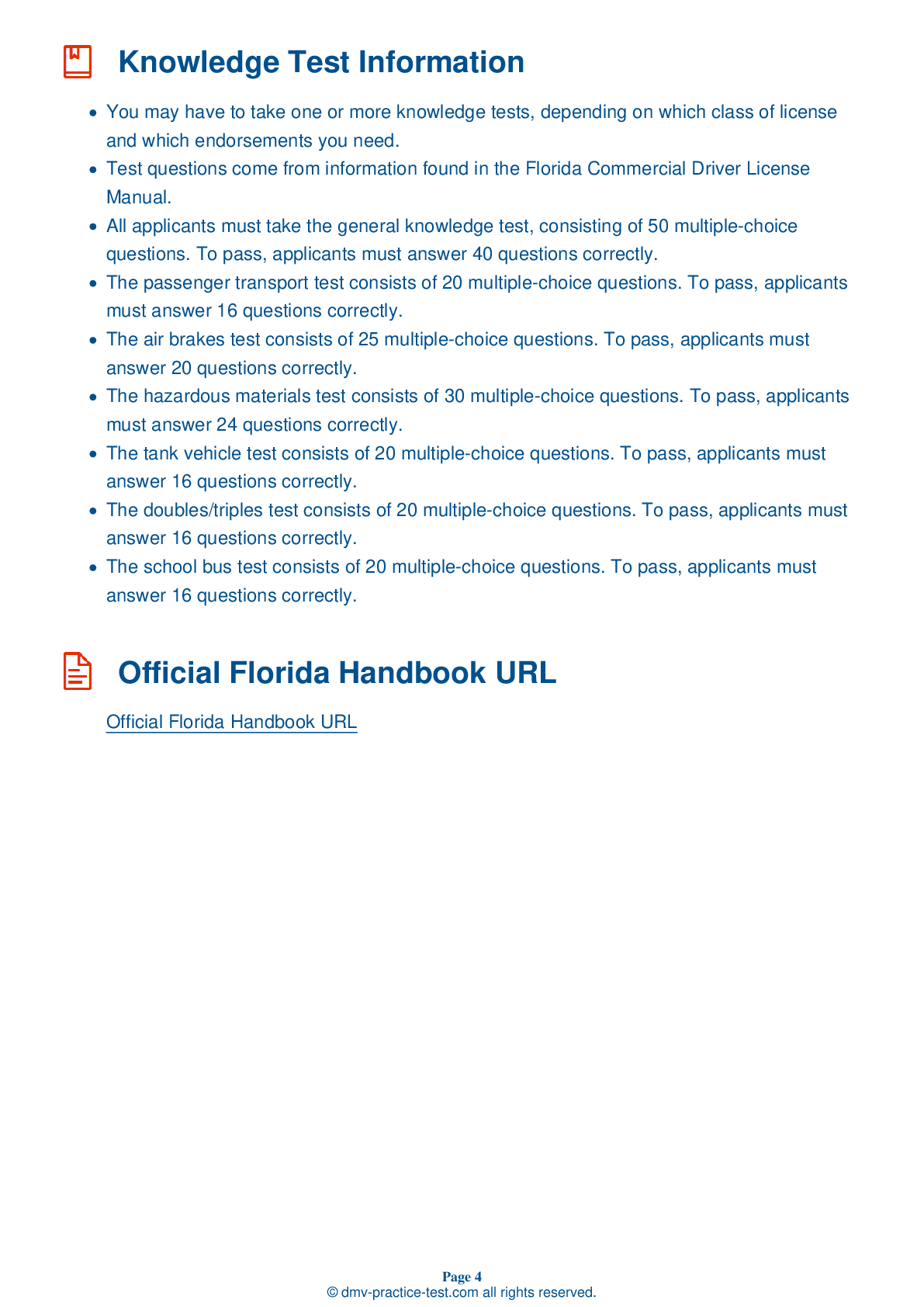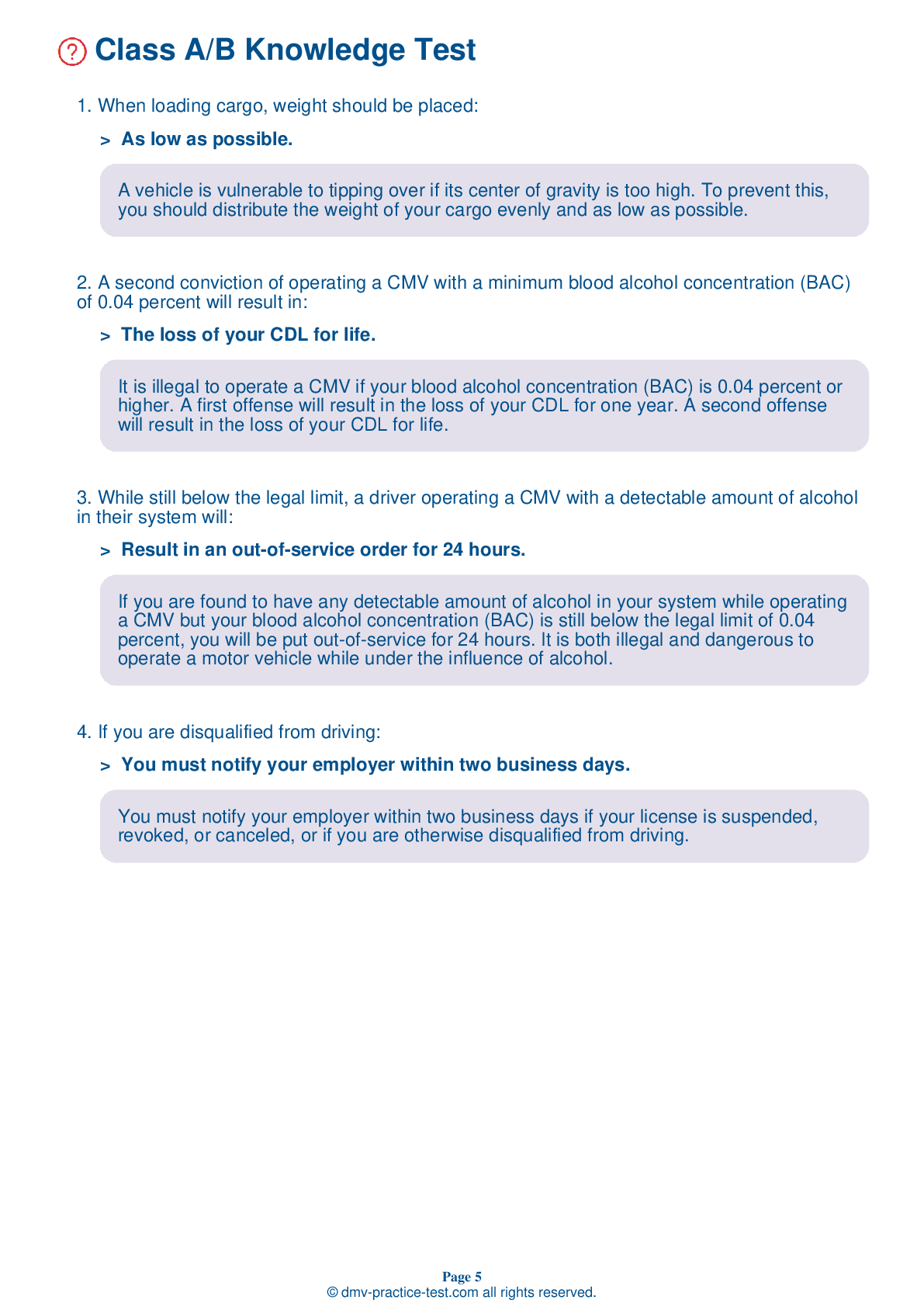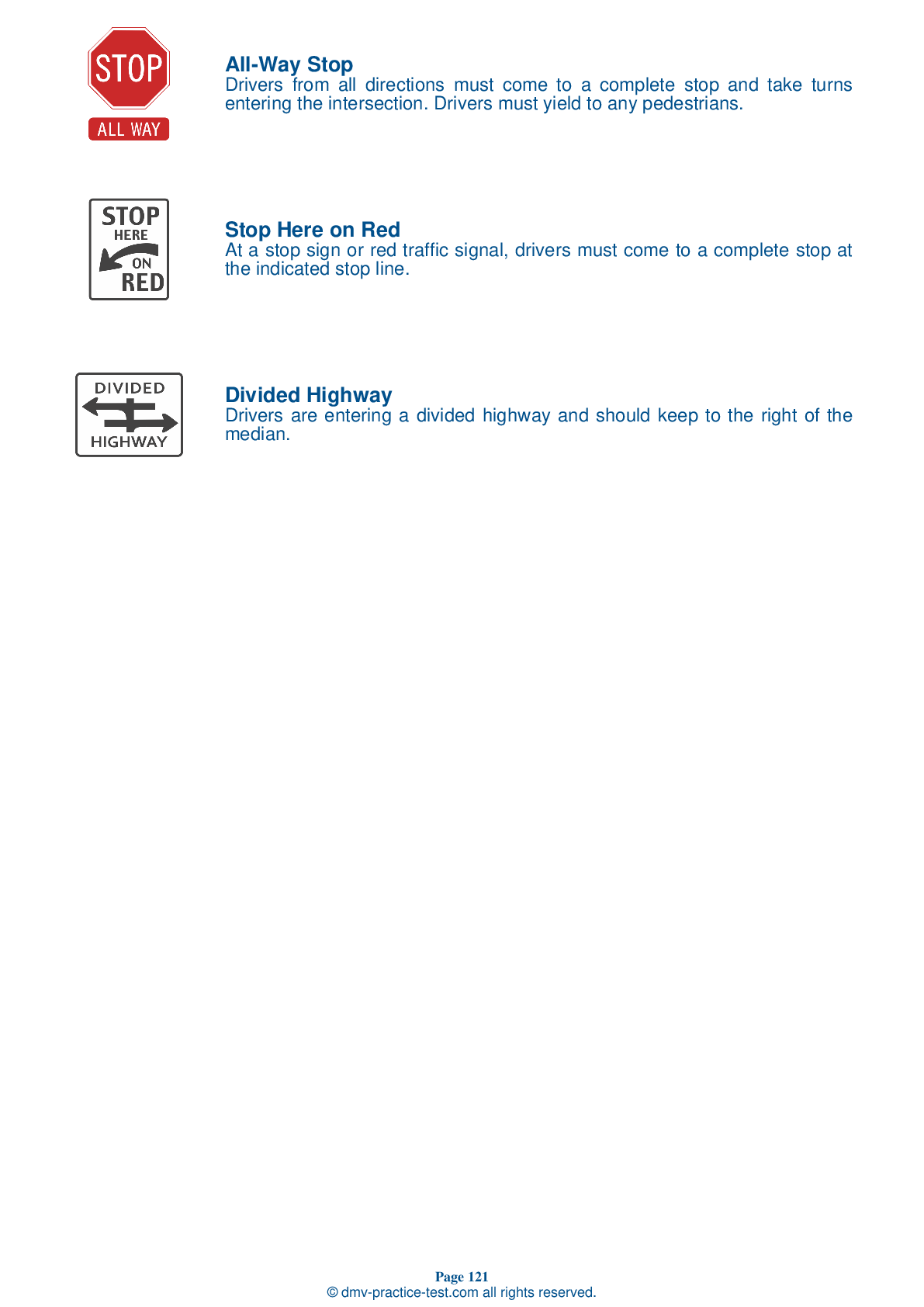Knowledge Test Class B #1
Class B Driving Test | Florida 2026 #1 Page 7 of 7
Train for FREE online with our Florida class B license test. The official exam test consists of several obligatory parts, with all of them checking your knowledge of different blocks of road rules. If you need to obtain a FL CDL class B permit in 2026, practice as much as possible. Free sample tests published on our website will help you check and improve your knowledge and boost your grades. Please bear in mind that CDL class B requirements may vary from state to state.
50
40
20
43 . Wheels with welding repairs are:
Wheels or rims that have had welding repairs are not safe for use. They should be replaced before the vehicle is taken on the road.
44 . If driving through flowing water or a large puddle, you should:
It is best to avoid driving through large puddles or moving water. If there is no way to avoid driving through water, you should slow down, shift into a low gear, and gently apply the brakes. Pressing linings against the brake drums or discs will keep water, mud, silt, and sand from getting inside the brake mechanisms.
45 . To stay alert while driving, you should:
Splitting driving responsibilities with a second driver lowers the chance that either of you will drive while fatigued. You can also reduce the risk of fatigue by avoiding heavy foods and keeping the interior of the cab cool.
46 . When driving a vehicle equipped with an Anti-Lock Braking System (ABS), you should:
Drivers of vehicles equipped with ABS and drivers of vehicles without ABS should brake in relatively the same manner. When ABS is working properly, it automatically applies when brakes are applied in situations that may create lockup.
47 . Hanging meat as cargo is usually:
A cargo of hanging meat can be very unstable, both because the meat swings about in transit and because its center of gravity is high.
48 . A Class 1 hazardous material is:
The first hazardous materials class includes explosives such as ammunition, dynamite, and fireworks.
49 . When encountering a railroad crossing during the driving test, you should:
During the on-road driving test, you must not stop, change gears, pass another vehicle, or change lanes while any part of your vehicle is in a railroad crossing.
50 . A driver must have a CDL if operating a vehicle that is designed to carry a driver and how many passengers?
A driver must have a CDL to operate a vehicle designed to transport 16 people or more, including the driver.
2026 Florida | Frequently Asked Questions
A CDL Class A license in Florida allows the holder to operate any combination of vehicles with a Gross Combination Weight Rating (GCWR) of 26,001 pounds or more, provided the vehicle(s) being towed have a GVWR of 10,001 pounds or more. It covers vehicles like tractor-trailers, truck and trailer combinations, and livestock carriers.
With a Class A CDL license, you can operate vehicles such as tractor-trailers, truck and trailer combinations, tank vehicles, and livestock carriers. This license also covers flatbeds, and vehicles towing trailers or other vehicles over 10,000 pounds. However, additional endorsements may be required for certain types of vehicles like school buses or tank trucks.
To obtain a Class A CDL license in Florida, you must be at least 18 years old (21 for interstate driving), hold a valid Florida driver's license, and pass a vision test. You'll also need to pass a general knowledge test, a combination vehicle test, and a skills test which includes a pre-trip vehicle inspection, basic controls, and on-road driving.
To qualify for a Class A CDL license in Florida, you must be at least 18 years old for intrastate driving (within Florida only) and at least 21 years old for interstate driving (across state lines). You also need to have a valid regular driver's license and pass both written and skills tests.
While a Class A CDL license covers a broad range of large vehicles, specific endorsements are required for certain types of vehicles or cargo. For example, to drive a tanker vehicle, school bus, or hazmat vehicle, you need a Tank (N), School Bus (S), or Hazardous Material (H) endorsement respectively. Each endorsement requires an additional knowledge test.
The Class A CDL skills test encompasses three main areas. The pre-trip vehicle inspection tests your ability to assess if your vehicle is safe to drive. The basic controls test assesses your ability to control the vehicle, back up, and perform turns. The on-road driving test evaluates your driving skills in various traffic situations, including left and right turns, intersections, railway crossings, and highways.
Yes, there are certain limitations for Class A CDL license holders. For instance, they may be restricted to driving automatic transmission vehicles if they took their skills test in such a vehicle. They might also be restricted from driving tank or passenger vehicles or carrying hazardous materials unless they have the appropriate endorsements. Additionally, all CDL holders must comply with federal hours-of-service regulations.
Yes, it is possible to take the written Class A CDL test in languages other than English in Florida. The Florida Department of Highway Safety and Motor Vehicles offers the test in Spanish. However, the Federal Motor Carrier Safety Administration requires that all CDL holders can read and speak English sufficiently to converse with the general public, understand highway traffic signs and signals, respond to official inquiries, and make entries on reports and records.
Yes, accommodations can be made for individuals with disabilities taking the Class A CDL written test in Florida. These may include providing the test in an audio format or allowing extra time. It's necessary to request these accommodations ahead of time from the Florida Department of Highway Safety and Motor Vehicles (DHSMV).
Yes, if you fail the Class A CDL written test in Florida, you can retake it. However, you must wait until the next day to do so. If you fail the test three times, you're required to complete a driver education course before you can attempt the test again. Always make sure to review the areas where you struggled before retaking the test.



